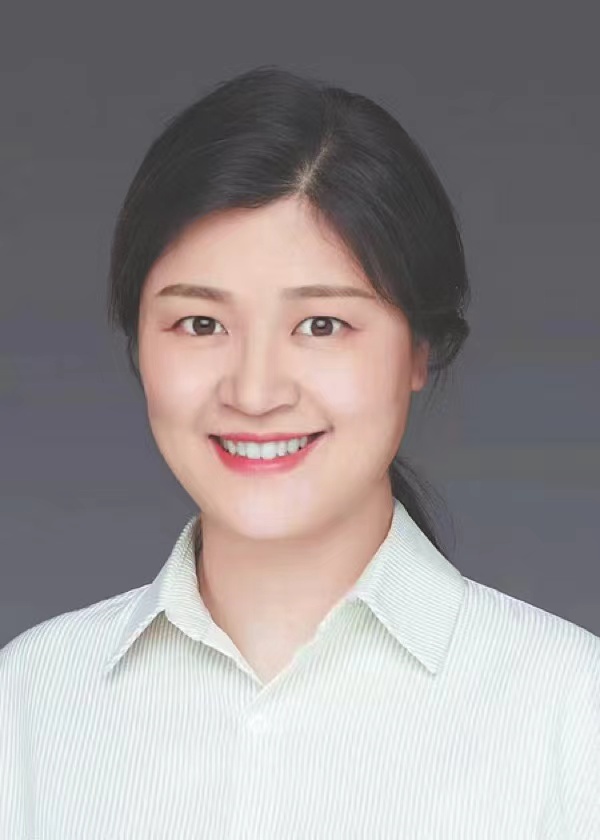A magnetic personality
Concentrating on scientific research and cultivating talent for China are the two goals that Huang Xiaoyan, a professor at the College of Electrical Engineering of Zhejiang University, set herself when she returned from abroad in 2009.
After returning to China 13 years ago, Huang has devoted herself to the development of high-speed rail.
Based on an algorithm model, Huang and her team developed a permanent magnet traction motor for a train with a speed of 350 kilometers per hour, improving efficiency by 3 percent and greatly reducing energy consumption compared with current high-speed rail technology.
"The accuracy of the model was more than 30 percent higher than our traditional model for calculating loss," she says.
It was the first motor of its kind to be domestically produced, and broke the monopoly of foreign technologies, as well as laid a foundation for the further development of high-speed rail in China.
In 2009, Huang, who obtained her doctorate degree in electrical engineering from the University of Nottingham in the United Kingdom, received several invitations for employment abroad.
In the same year, on Dec 26, the Wuhan-Guangzhou high-speed railway, arguably the world's fastest train journey at a speed of 350 kilometers per hour, started operation. China was vigorously developing its high-speed rail network at that time, and the energy consumption of its trains' power systems was a key area that needed a breakthrough.
However, the main technology of high-speed rail motors was monopolized by other countries, so there was an urgent need for more efficient, homegrown motors.
Therefore, with the dream of making China's high-speed rail the most advanced in the world, Huang decided to return home.
In 2011, Huang and her research team began to undertake the task of developing a permanent magnet traction motor-a traction motor that's smaller, weighs less and has a higher energy utilization efficiency.
In 2014, China finished assembling its first domestically-developed high-speed trains driven by permanent magnet synchronous motors which passed operation testing in 2015.
Huang and her team had successfully developed the first permanent magnet traction motor for high-speed trains with a speed of 350 kilometers per hour. It marked a revolutionary change in China's transportation landscape and showed that China become one of a few countries in the world to grasp the technology of permanent magnet motor systems and applied it to high-speed rail.
"I am very excited to have been able to participate in such a very important research task," says Huang, who led the team over five years as they overcame many mechanical difficulties, as well as challenges with the electromagnetic diagram and the control algorithm. The team won second prize at the National Technology Invention Award.
"We still have a lot of work to do in the future, and our scientific research will be more in-depth, laying a foundation for our followup work," Huang says, adding that the support of the Communist Party of China, and the State, for young researchers has affirmed her determination to use science and technology to serve the country.
"Professor Huang guides me patiently when I encounter problems," says Chen Zhuo, a doctoral student at Zhejiang University, who has been doing research with Huang since his junior year. "At the same time, we can also inspire each other, and we often conduct experiments together until late in the evening."
Hu Qichao, one of Huang's postgraduate students agreed. "We like to talk things through with professor Huang. She always urges us to be brave and embrace trial and error, encouraging us to learn from failure, and helps us to overcome difficulties."

Huang Xiaoyan
Huang is just one of the scientific researchers in the College of Electrical Engineering of Zhejiang University who are at the forefront of scientific innovation crucial to the country's development.
"The members of the R&D team on the world's first large-scale dualwater internal cooling generator, and the R&D team of the electric power device for the manned space environmental control and life support system technology, are professors from the College of Electrical Engineering of Zhejiang University," says Huang.
"They are pioneers and they're unyielding. They have achieved major scientific and technological breakthroughs under difficult conditions, and they are role models of our time," Huang says.
"I hope that I can undertake my mission of cultivating top talent, and make further contributions to serving the nation, as well as the world," Huang says.
"I believe that only by sharing my dreams with the country can I truly realize my value."
Contact the writer at mazhenhuan@chinadaily.com.cn





 play
play